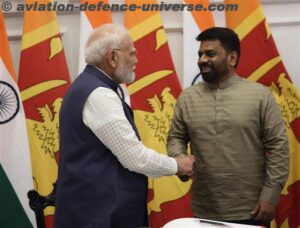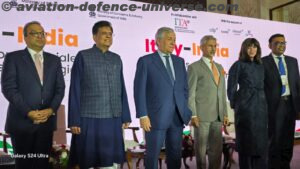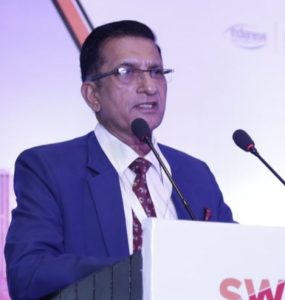By Jai Kumar Verma
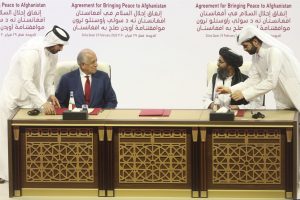
New Delhi. 21 April 2020. A lot of water has flown under the bridge since the Afghan peace process began and got momentum post the appointment of Zalmay Mamozy Khalilzad as Special Envoy on 5 September 2018. Khalilzad an Afghan American diplomat who served as the U.S. Ambassador in Afghanistan and United Nations has been instrumental in the peace talks held at Doha, the capital of Qatar more than once. And these talks saw positive culminatio on 29 February 2020 when U.S. and Taliban signed a conditional peace agreement, which raised the hope that 19 years extensive war in Afghanistan may end soon.
In this elongated war more than 3,500 U.S. and NATO soldiers lost lives while thousands of Afghan soldiers and civilians were killed. Afghanistan was devastated and millions of Afghans were forced to leave their native places. The peace agreement gave legitimacy to Taliban, as they signed the agreement as Islamic Emirates of Afghanistan (IEA). The accord mentions that all foreign troops including non-diplomatic staff, contractors and trainers will leave war-torn Afghanistan within 14 months if Taliban comply the terms of the agreement. U.S. also promised to reduce its forces from 13,000 to 8,600 within 135 days. Besides withdrawal of the foreign troops, the accord also assures about stoppage of terrorist attacks by Taliban.
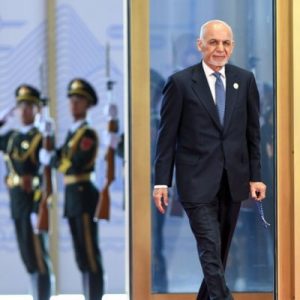
It was also decided that intra-Afghan negotiation which is the most important part of the accord would commence from 10 March. However, Afghan government which was not party to the agreement refused to prisoner swap under which it had to release 5,000 Taliban prisoners while Taliban would release 1,000 prisoners. President Ghani made it clear that all Taliban prisoners cannot be released before start of intra-Afghan talks as it needs more negotiations. Ghani under U.S. pressure agreed to release 1,500 Taliban prisoners provided they sign guarantees that they would not join the battle. Next day Taliban rejected the offer of Afghan government mentioning that in the agreement U.S. agreed to free all 5,000 Taliban prisoners before the start of intra-Afghan negotiations. Afghan government made it clear that Taliban fighters would be released in batches. Government would also check their crimes and will act according to its legal system. The release will also depend on the progress of negotiations with Taliban. In fact, Afghan government would like to use the prisoners as a pressure point in negotiations while Taliban want their release before start of intra-Afghan negotiations. Khalilzad twitted and blamed Afghan government for not releasing the Taliban prisoners. He also stated that Taliban already committed that released prisoners would not join the battleground and if they violate the terms it would weaken the agreement. Ghani released 100 Taliban prisoners on 8 April when Taliban officially withdrew from the negotiations on 7 April.
There are several impediments in the implementation of the peace accord. Two persons Ashraf Ghani and Abdullah Abdullah have taken oath of President of Afghanistan on 9March as both of them claim that they won the presidential election. Although the election commission declared after considerable delay that Ghani won the elections, but Abdullah has refused to accept the results. He charged that the election results were forged, and the election commission was influenced. The intra-Afghan talks would be affected because of two presidents and a fragile government. The Taliban would also adopt a tough posture in the intra-Afghan negotiations because it has strengthened itself, already captured large areas and developed its strength to about 60,000 combatants. On the other hand, Afghan government is marred because of cultural, traditional, factional, tribal and sectarian differences.
Taliban are Sunni Muslims hence they will enforce Sharia laws as per Sunni traditions which will not be acceptable to Shias who are about 30 percent in the country. Taliban are mostly Pashtuns hence they will govern the country as per Pashtun traditions which will be opposed by more than 14 other ethnic groups in Afghanistan. Nevertheless, biggest problem will arise about sharing of power between Taliban and present government. Taliban warriors will not give up their arms and Taliban will not accept present constitution. ISI which supported Taliban would like to have a puppet regime in Afghanistan and will press U.S. to help Pakistan in Financial Action Task Force (FATF) so that it comes out from ‘grey list’.
Afghanistan has several terrorist groups and their sub-groups, and all groups do not pay allegiance to Taliban and these groups will not adhere to the peace accord and they may continue attacks on Afghan National Defence and Security Forces (ANDSF) and foreign troops. Few tribal leaders are earning huge money by the smuggling of drugs and will not accept the peace accord. The outbreak of coronavirus would also delay the peace agreement. Although there was less impact of the current pandemic in Afghanistan, but Iran and Pakistan pushed large number of Afghan refugees in Afghanistan where health facilities are still primitive. According to Afghan ministry of health about 16 million people in the country would be infected and several thousand persons would die. The epidemic may also jeopardise the peace accord.
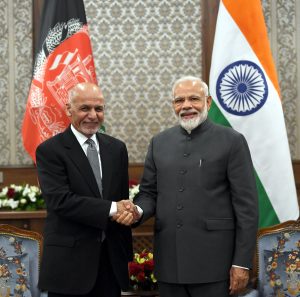
India which has close relations with Afghanistan has not only invested huge amount in the country but also wants restoration of peace and tranquillity in the war-torn nation. India wants to curb drug cultivation and smuggling from Afghanistan. ISI pumped large quantity of opium in India and several young people became addict of it. There is direct link between drug smuggling and terrorism. ISI uses some portion of drug money in financing terrorist activities in India. Delhi also wants that the influence of ISI should not increase so much that it destroys India’s good work and ISI should not infiltrate Afghan Mujahedeen in India especially in Kashmir. Consequent upon the peace deal, large number of ISI trained Afghan and Pakistan Mujahedeen may be free and ISI would like to infiltrate them in Kashmir as Indian security forces have eliminated large number of terrorists both foreign and local Kashmiris.
India has also interest in vast mineral resources of Afghanistan as it is a mineral rich country and has enormous gas and oil reserves. India can export several items to war ravaged Afghanistan through Chabahar seaport. India can help Afghanistan in development of its security forces especially defence forces.
President Trump wants to fulfil its poll promises by withdrawing U.S. forces from Afghanistan before November 2020 hence Indian security forces must chalk out a detailed plan so that Indian interests in Afghanistan can be saved. Indian security forces should also be careful so that ISI cannot infiltrate Afghan Taliban in India. There are several instances when ISI infiltrated terrorists not only from Pakistan borders but also penetrated terrorists from Nepal and Bangladesh. Indian security forces should deploy more electronic gadgets including drones on the borders.
Emphasis should be given on the collection of actionable intelligence and for that matter the intelligence agencies must be strengthened, and more emphasis should be given on the training of officers and staff. At present there is very good teamwork and coordination between different security agencies functioning in troubled areas hence security forces are able to exterminate large number of terrorists in Kashmir.
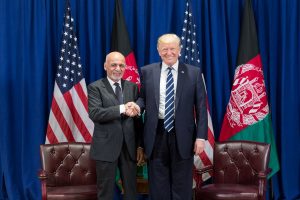
President Trump is determined to drawdown U.S. troops and once U.S. leaves Afghanistan neighbouring countries including Pakistan, China, Iran and Russia will try to increase their influence. These countries will not work for the development of Afghanistan but will concentrate on their interests. Pakistan besides increasing its influence will try to destroy Indian impact.
Although it will not be easy to initiate dialogue with Taliban as in past India always worked with the lawfully elected government, but India should try that this time ISI does not succeed using Afghanistan for carrying out terrorist activities in India including plane hijacking. In December 1990 Indian Airlines plane IC 814 was hijacked and reached Kandhar where India had to release few prominent terrorists. India should also try to reform its system so that the punishment to terrorists is implemented at the earliest.
Different powers of the world should extend financial assistance to war-ravaged Afghanistan so that the country develops, and the citizens avail the basic amenities. All the countries should also help ANDSF so that it can face the Taliban as well as the Islamic State (IS). IS after its annihilation from Iraq and Syria is trying to establish itself in Afghanistan. Foreign powers like Iran, China, Russia and Pakistan are directly or indirectly supporting Taliban as they do not want IS to strengthen in Afghanistan. However instead of helping Taliban these countries should strengthen ANDSF by providing better training and weapons.
At present India is training the officers of ANDSF but it is not enough. Large number of officers should be trained and if necessary Indian officers can be sent to Afghanistan to train the officers. More emphasis should be given on collection of actionable intelligence and for that committed officers should be posted in intelligence departments. The strengthening of ANDSF is most important because if Taliban or Islamic State comes to power in Afghanistan it will be disastrous not only for Afghanistan but for the whole world.
(Jai Kumar Verma is a Delhi-based strategic analyst and a retired senior intelligence officer. He is also member of United Services Institute of India and Institute for Defence Studies and Analyses. The views in the article are solely the author’s. He can be contacted at editor.adu@gmail.com)






































